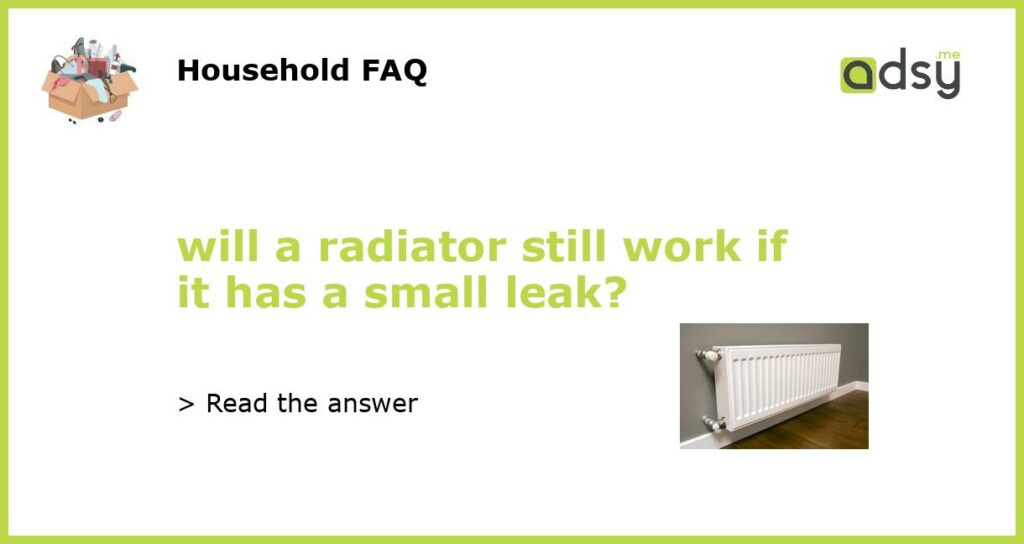Yes, a radiator can still work with a small leak
If you discover that your radiator has a small leak, don’t panic just yet. In many cases, a radiator can still function properly even with a small leak. However, it is essential to address the leak as soon as possible to prevent further damage and potential failure of the radiator. In this article, we will explore why a radiator can still work with a small leak and the steps you should take to fix the issue.
Understanding how radiators work
Before we dive into whether a radiator can still function with a small leak, it’s crucial to understand how radiators work. Radiators are vital components of a heating system that help distribute heat throughout your home. They are designed to transfer heat from hot water or steam to the surrounding air, which helps to warm up your living spaces. Radiators consist of metal fins or tubes that have a large surface area, allowing for efficient heat transfer.
The impact of a small leak on radiator performance
A small leak in a radiator can affect its performance to some extent. The severity of the impact depends on the location and size of the leak. If the leak is tiny, it might not significantly affect the radiator’s ability to heat your home. However, it is important to note that the leak can worsen over time if left unaddressed and potentially lead to bigger problems.
Risks associated with a small radiator leak
While a small leak may not immediately hinder the functioning of your radiator, it can lead to various risks if ignored. One of the primary concerns is water damage. Even a small leak can cause water to seep into the surrounding areas, leading to structural damage and the growth of mold and mildew. Additionally, a leak can lead to a decrease in water pressure, which can affect the efficiency of your heating system and result in higher energy bills.
Steps to fix a small radiator leak
If you discover a small leak in your radiator, it is essential to address the issue promptly. Here are the steps you can take to fix a small radiator leak:
1. Turn off the heating system: Before attempting any repairs, it is crucial to turn off your heating system to avoid potential burns or injuries.
2. Identify the source of the leak: Inspect your radiator thoroughly to determine the exact location of the leak. It may be visible as a small hole or crack in the metal of the radiator.
3. Clean the area around the leak: Use a mild cleaner or degreaser to clean the area around the leak. Removing any dirt or debris will help ensure a tight seal when making the repair.
4. Apply a radiator leak sealant: There are various radiator leak sealants available in the market that can temporarily fix small leaks. Follow the manufacturer’s instructions to apply the sealant correctly.
5. Monitor the radiator closely: After applying the sealant, closely monitor your radiator for any signs of further leakage. If the leak persists or worsens, it is recommended to consult a professional plumber for a more permanent solution.
In conclusion, a radiator can still function with a small leak, but it is important to address the issue promptly to prevent further damage and potential failure. While a small leak may not immediately hinder the performance of your radiator, it can lead to water damage, mold growth, and decreased heating system efficiency if left unaddressed. By following the steps mentioned above, you can fix a small radiator leak and ensure the proper functioning of your heating system.






